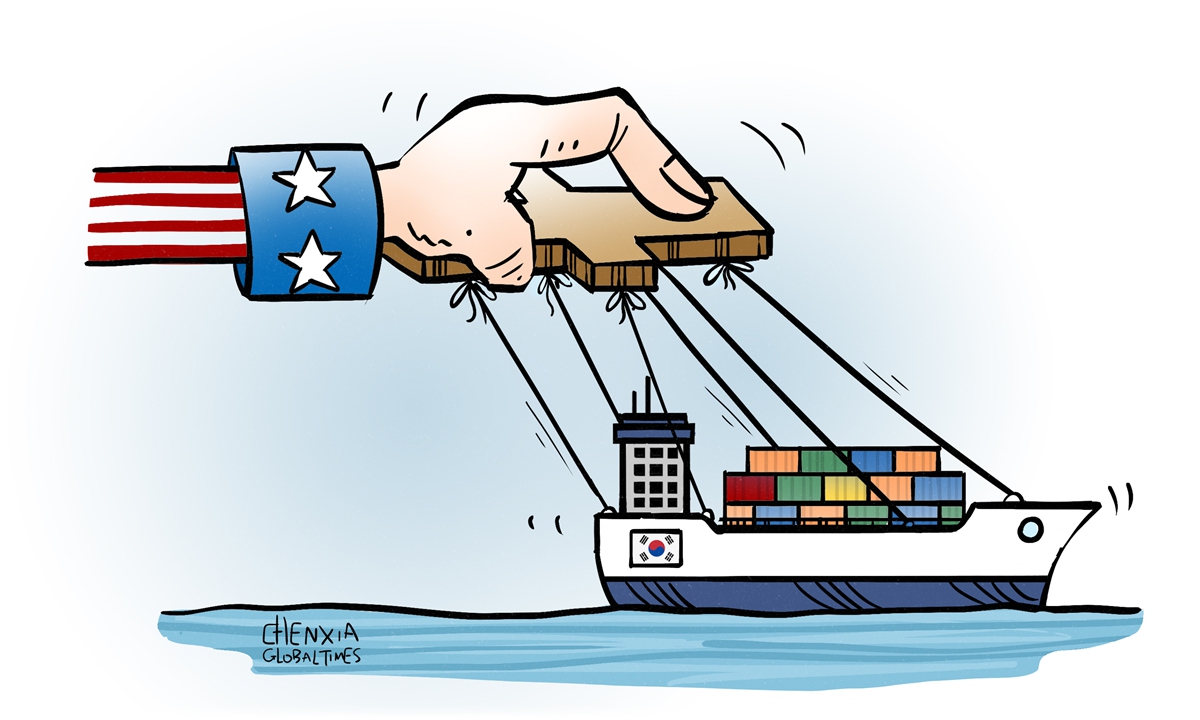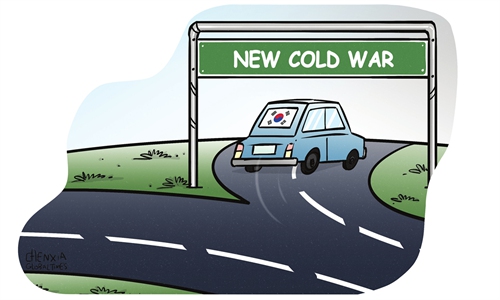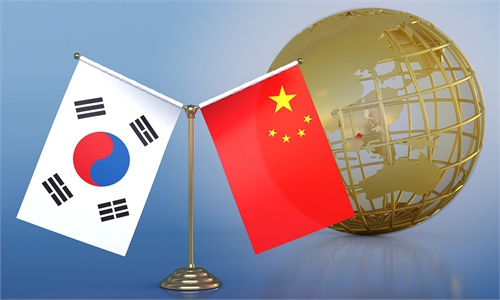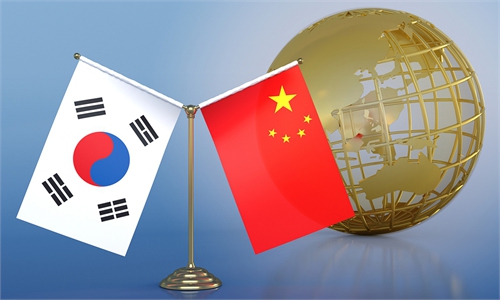
Illustration: Chen Xia/Global Times
The US' ill-intentioned chip war has become a dangerous game, during which South Korea is increasingly facing a predicament as its high-tech exports continue to tumble. Although the country's exports to China slightly increased in May to $12.8 billion, the figure sealed an accumulated decline of 26.7 percent year-on-year in the first five months of this year, ringing alarm bells for the South Korean economy.Before Chinese customs released trade data for May on Wednesday, some media outlets hyped up the issue of China-US competition. They said the US could become South Korea's top trading partner in the foreseeable future, replacing China. Citing data from South Korea's trade ministry, the Korea Herald reported that South Korea's exports to China in April decreased to $9.52 billion, while the country's exports to the US reached $9.18 billion.
As for South Korea's exports to the US by category, petroleum products, petrochemicals, steel, auto parts, secondary batteries, and plastic products all showed an increase in export volume, Business Korea reported. South Korea's export growth to the US is obviously good news for the South Korean economy, but, at the same time, South Korean society should be vigilant and avoid allowing the US to use South Korea-US trade as a bargaining chip in its geopolitical games.
The Financial Times reported in April that Washington had asked Seoul to urge South Korean chipmakers not to fill any market gap in China left by US chipmaker Micron Technology Inc, citing people familiar with the situation. South Korea is a sovereign country. Washington doesn't have the right to directly intervene in internal economic affairs of South Korea and its trade with China. It is in fact a declaration of the US hegemony. Even if Washington knows such an action will harm the interests of its allies, it believes its allies can do nothing but bear the US' abuse of its hegemony.
According to South Korea's KBS News, Seoul said that guidance on the Inflation Reduction Act released by the US Treasury on March 31 has considerably reflected opinions voiced by South Korea and its businesses. Washington seems willing to give South Korea some candy, but its real purpose is to lure South Korea into a trap, play the carrot-and-stick game and use economic coercion in bilateral trade to serve US interests.
Although US-South Korea trade has shown some positive signals, total exports from South Korea have shrunk dramatically in recent months. South Korea's exports fell for a seventh straight month in April for their longest losing streak in three years, driven by an extended slump in sales to China, Reuters reported. South Korea's heavily trade-reliant economy barely averted a recession in the first quarter of the year, expanding by 0.3 percent over the previous three-month period, but the outlook remained clouded by weak exports.
China has been South Korea's largest trading partner for 19 consecutive years. China-Korea trade is of great significance to South Korea's export-oriented economy. More importantly, South Korea-US trade cannot replace South Korea-China trade. The trade volume between China and South Korea in 2021 is close to the sum of South Korea's trade volume with the US, Japan, and Europe. 25 percent of South Korea's exports went to China in the year. Despite US pressure, South Korea should not tilt toward the US at the expense of trade with China.
As the global economy and trade face severe challenges, South Korea should strengthen coordination with China to promote further economic and trade cooperation to jointly tackle challenges. According to Chinese customs data, since September 2022, South Korea's exports to China have declined month by month. Simultaneously with the shrinking trade scale between South Korea and China, South Korea has experienced consecutive trade deficits that have been rare for decades. Resisting the pressure of the US, maintaining independence in China policy, and expanding trade with China is beneficial to South Korea.
The more the US promotes "decoupling" or "de-risking" from China, the more it puts pressure on South Korea, and the more South Korea must maintain its strategic sobriety. South Korea should not sacrifice its own interests to serve the US geopolitical calculations. While Chinese economy and market represent great opportunities, economic coercion and bullying by the US is the real risk to the South Korean economy.
The author is a reporter with the Global Times. bizopinion@globaltimes.com.cn



